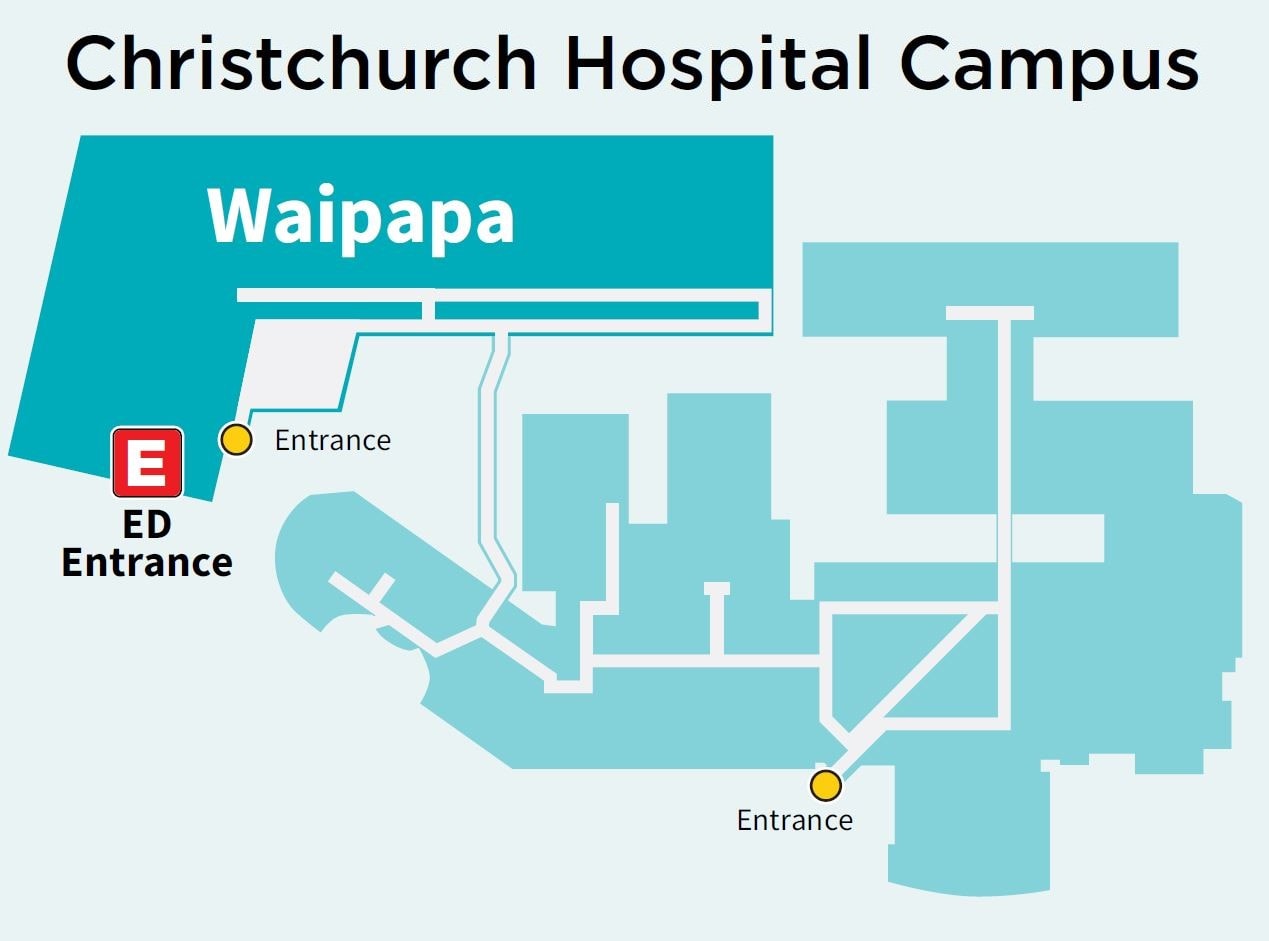There is a drop-off area directly outside the Emergency Department entrance for patients and very limited premium metered car parking in front of the Emergency Department outside the Waipapa building. This is the only public car parking available on-site, and we encourage using this only for emergencies and patient drop-off and pick-up. We recommend that drivers use different nearby car parks if needing to park longer than 30-60mins.
The first 30 minutes of parking is free (license plate must be entered to get 30 minutes free). After 30 minutes the following charges will apply:
- 30-60 minutes: $7.50
- From 60 minutes onwards: additional $5 per half hour or part thereof ($80 maximum charge for a 24-hour period).
There are also a number of P180 mobility parks in this area. These parks are free for permit holders.
We recommend that you use the nearest off-site car parking, this is located on Oxford Terrace, Riccarton Avenue, Rolleston Avenue, Cambridge Terrace, and Deans Avenue. You can also use nearby CCC public car parks.
More parking options are listed on our Transport and parking page and on the CCC Car Parking Map.

